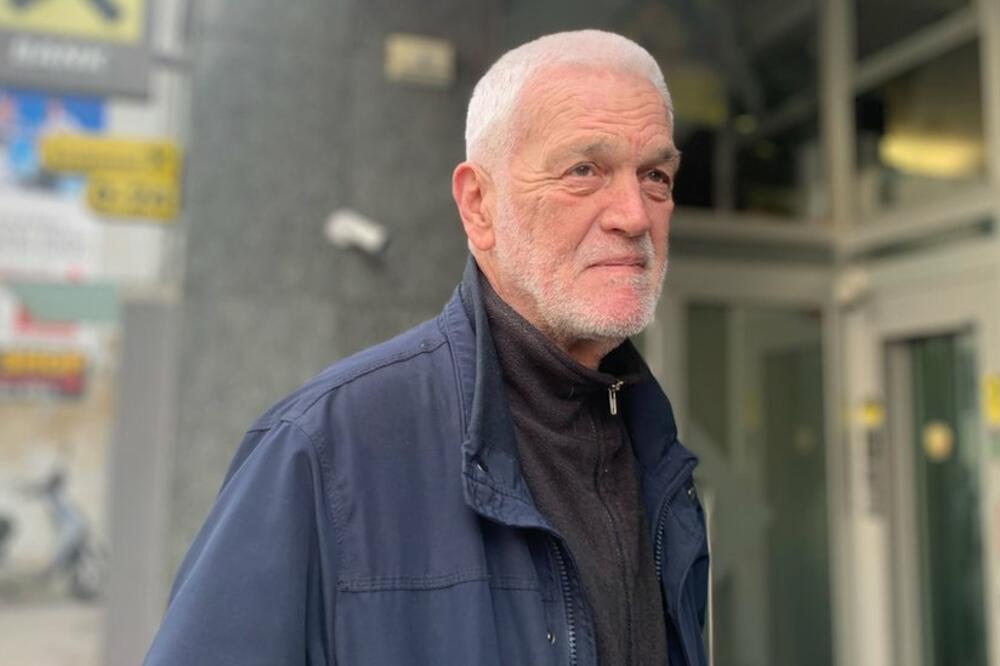Although it was said that the elections would bring about changes and a different Croatia, which would primarily deal with the so-called "corrupt octopus", as well as a better standard of living and an increase in pensions, the distribution of political forces remained almost the same.
The Croatian Democratic Union, which has been led by Prime Minister Andrej Plenković for eight years, has been in power for almost three decades in Croatia, on Wednesday again won the largest number of mandates in the parliamentary elections - 61 out of 151 in total.
"HDZ convincingly won the parliamentary elections for the third time in a row," Plenković said late on election night.
In a calm but joyful address, he announced the third government, and then toasted with champagne with his colleagues.
Croatian citizens have decided to "support thieves and theft," he said Fred Matic from the ranks of the Social Democratic Party of Croatia (SDP), which won 42 votes in the elections together with the partners gathered in the 'River of Justice' coalition.
"People cry at night because their children are in Germany and Ireland, and during the day they vote for HDZ." Science calls it Stockholm syndrome.
"I noticed that bitterly in Slavonia," Matić said, adding that the HDZ membership card has become a ticket for everyone.
"Our institutions were killed".
Slavonia, once the golden granary of Yugoslavia, has for years been synonymous with abandoned villages and a decrease in the number of inhabitants, and according to projections by 2030, there will be even more 100.000 fewer people.
- Parliamentary elections in Croatia: HDZ is still the strongest, but it cannot form a government by itself - preliminary results
- Elections in Croatia: Traditional rivals in a clinch, and the decision may be in the hands of the third
- How two neighboring villages in the north of Croatia became bastions of eternal political rivals
- "Kremlenko" against "Udbasenko": Croatian elections in the shadow of the conflict between the prime minister and the president
Joško Buterin, a pensioner from Zagreb, believes that nothing has changed with the vote.
"Politicians are people who think only of themselves, not only in our country, rulers have never cared about people, but only about themselves.
"Nothing has changed for thousands of years, just like yesterday, the same people, they're just chatters," the gray-haired man told the BBC in Serbian.
Despite the increase in pensions, he lives hard and is sad and worried about the future of his grandchildren who are growing up in Croatia, because "traditional values" are being destroyed.
Who is entering the game for the new government?
Traditional values, criticism of women's rights, along with the so-called return to the family and sovereign state power proved to be a good recipe for winning mandates in the elections in Croatia.
The right-wing Homeland Movement became the third political force and won 14 mandates, followed by the conservative Most and Partners with 11 and only in fifth place is the left-wing and green platform Mozemo, which holds power in the capital Zagreb, with 10 mandates.
The Istrian Democratic Assembly with three mandates, Fokus two and the Independent Platform North of local leader Matija Posavac with one mandate will also be in the parliament.
The Croatian Parliament has a total of 151 seats, so it is necessary for parties or coalitions to gather a majority of 76 votes to form a new government.
The leader of the Homeland Movement, Ivan Penava, said on election night that he would start "shaping the destiny" of Croatia the very next day, as well as that cooperation with the minority Independent Democratic Serbian Party (SDSS) of Milorad Pupovac was out of the question under any conditions, and that with the We can do "mission impossible" platform.
Although he said that "HDZ and SDP are two wings of one bird", he did not rule out the possibility of cooperation with those wings.
Goran Čular, a professor at the Faculty of Political Sciences in Zagreb, interprets this as an announcement that the first attempt to form a government will be between the HDZ and the Homeland Movement.
"The winner is whoever it is according to the numbers, which is the HDZ, and more broadly, we could say that the winner of the election is the right wing."
"If it were to go in the direction of forming a center-right government around the HDZ, the Homeland Movement will certainly condition it with some firmer policies on what Plenković has so far avoided," says Čular.
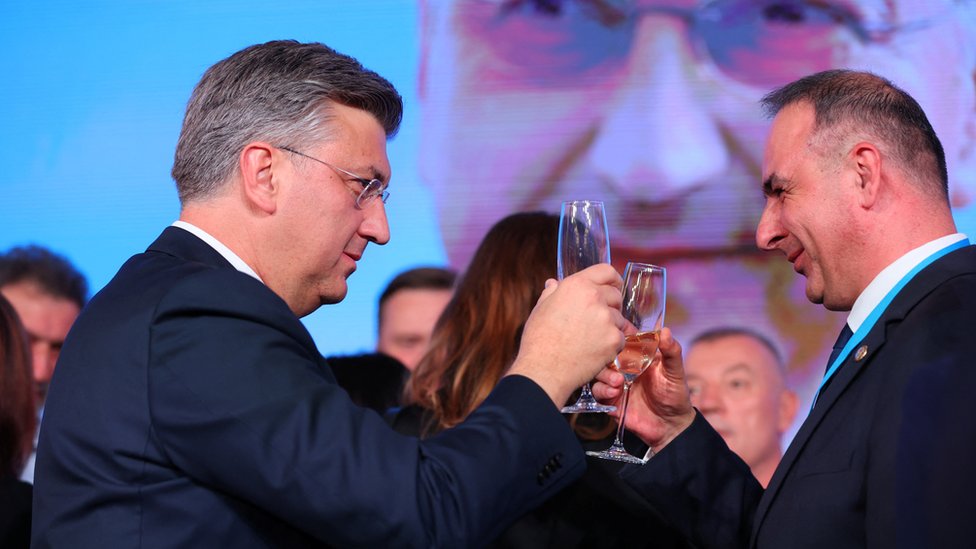
Plenković, during his prime ministerial mandate and leadership tenure in the party, moved HDZ from the right to the center, through green policies and the protection of women, the professor adds.
"If that coalition succeeds, it would be the first time in Croatia that you have an HDZ government and parties to the right of the HDZ," says Čular.
Ankica Mamić, a communications expert, makes a similar assessment, noting that the Homeland Movement has extremely sovereignist views and policies on illegal migrants, which conflict with Plenković as a "faithful soldier of EU politics who does not solo".
"If it were to happen that they form a government together, they will certainly insist on at least a slightly more disobedient policy towards Brussels," Mamić says.
That is why he believes that Plenković's first "pick" will be to form a government with small parties, minorities and with the "stealing of some of the deputies", the so-called flyover, because he would not have to change the beaten track.
"The homeland movement may be in a position to be." kingmakers - to decide who will become king," Mamić concludes.
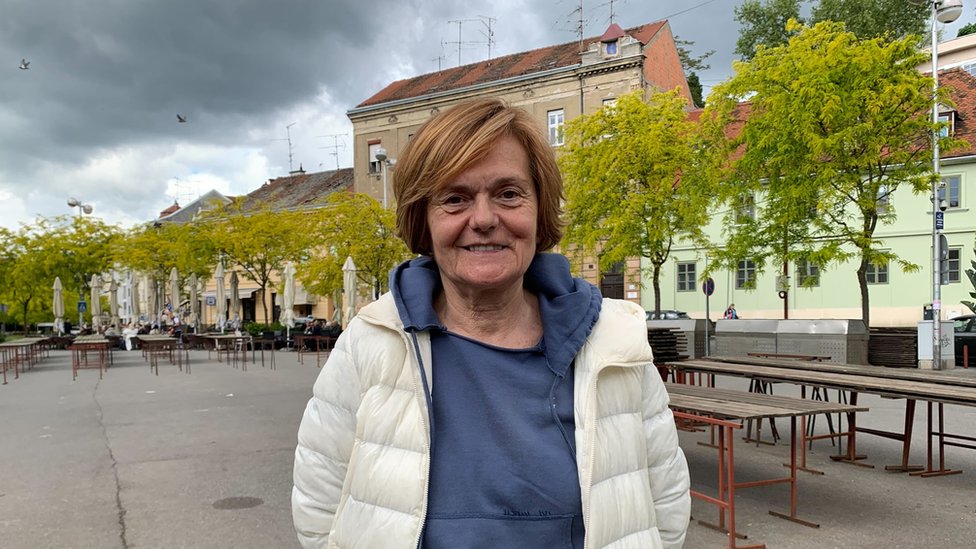
The third option, although hardly sustainable in the long term due to major ideological and personal differences, is for all those who entered the Parliament to gather together and overthrow the HDZ, as a minority government - this means that some parties would vote in the assembly for laws, but would not have ministers in the government.
Who are the losers of the election?
SDP can be considered a loser, although it will get a mandate or two more than in 2020.
"With all the help of Milanović, it was obvious that it was not possible to overcome what the SDP got the previous time," says Čular.
The decisive role in the campaign was played by President Zoran Milanović, who announced that he would run in the elections, after which support for his SDP jumped overnight and people were encouraged to vote.
Milanović gave up his resignation and formal candidacy, in order not to violate the constitution, but with sharp words he participated in the campaign very dedicatedly, wishing that in the coming weeks he would move from Pantovčak, where the seat of the Croatian president is, to the prime minister's chair.
"When Milanović joined the campaign, the SDP acted as if everything would happen by itself now.
"Neither did the campaign properly, nor was it good, and in some cities and municipalities they had very bad results," says Mamić.
And for HDZ pre-election messages and videos, he says that they were "boring and bad" and that, if they had been better, "against such a bad SDP", they could have made an even more convincing result.
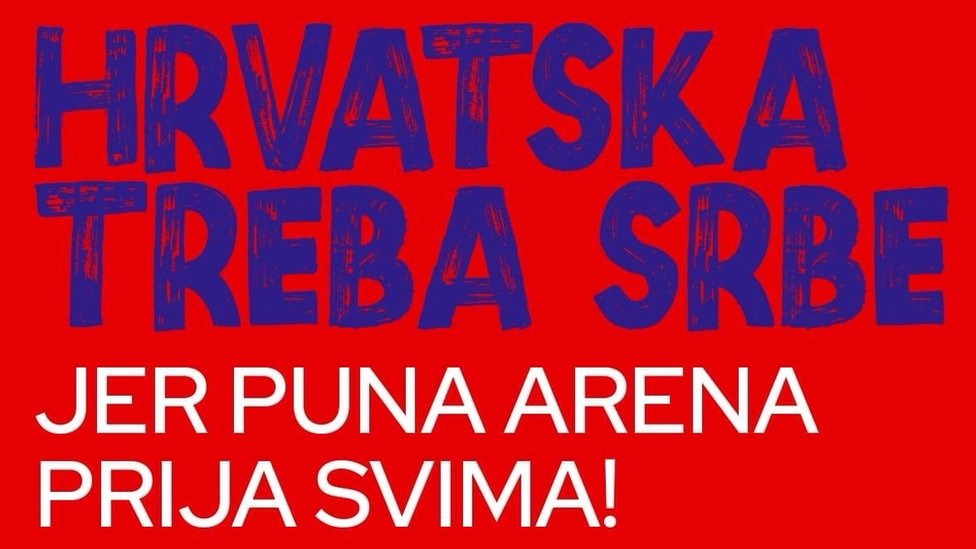
The only campaign that she praised as a "top hit", because it is creative, meaningful and opens up good topics in a civilized way - through tolerance, was the SDSS "Croatia needs Serbs".
And indeed, the problems of Croatian society, judging by the last month in Croatia, no longer include national or historically colored topics - otherwise often fashionable in the political life of the Balkans - the breakup of Yugoslavia or the Second World War were barely mentioned.
The campaign, however, came down to current problems, primarily economic.
- Ivo Goldstein: What are the myths and what are the truths about the relations between Serbs and Croats in the Second World War
- Croatia introduces the euro: What it means in 100 and 500 words
- "The EU is not the teacher, but we are the little students": What Croatia gained from membership in the European Union
- What is behind Chinese investments in the Balkans and what price will Europe really have to pay
How to live in Croatia?
While walking her dog through the central streets of Zagreb, Marija says that she expects the future to be the same as before, and that is - "very good".
"Life is much better, considering that we have EU funds, we have withdrawn them very well and used them for earthquake reconstruction and for everything.
"It's the first money we've had so far, we finally have some capital," says Marija.
She is convinced that the government has led the country well and will continue to do so, if the HDZ is once again the backbone of the ruling majority.
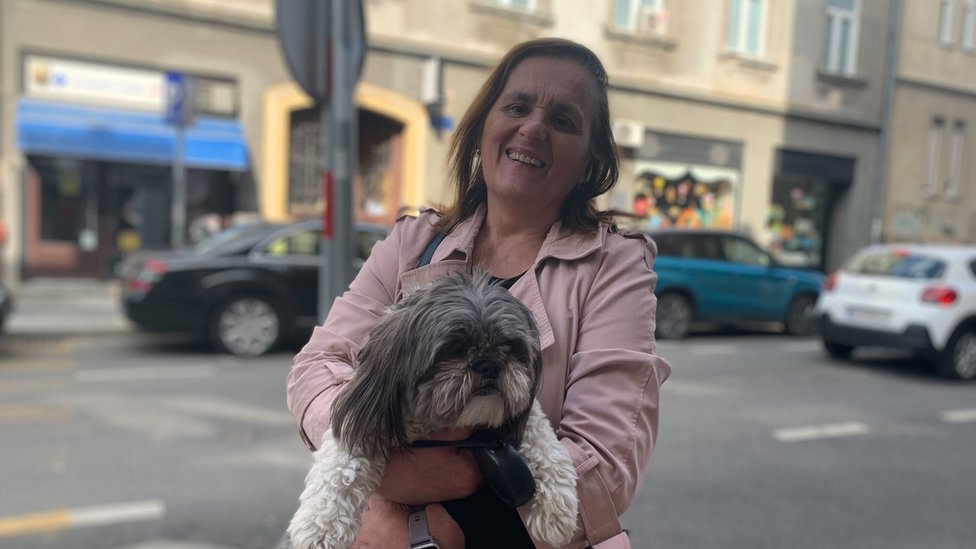
Not everyone shares her optimism.
Life satisfaction in Croatia was rated 6,8, which is less than the EU average - 7,1.
Poor purchasing power, which was talked about a lot in the campaign, also contributes to this.
Annual inflation rate in Croatia in December, according to official data, it was 4,5 percent, while according to Eurostat data, it was 5,4 - almost twice as much as in the euro zone.
Just before the election, Prime Minister Plenković increased salaries in the public sector and pensions by 1,63 billion euros, which was "biggest increase in history".
The minimum wage - the so-called minimum wage - in Croatia is 840 euros, the average salary is 1.191 euros, and the pension is 551.
"We joked that this is the most expensive election, because it will cost us approximately three billion, which is the increase in salaries and pensions, which started with payments in April.
"I don't see HDZ changing policies significantly, Plenković's great strength is that he is a very good connection between Croatia and Brussels," says Mamić.
Croatia not only receives money from the EU budget, but also significantly for being part of the Schengen area, since almost 20 percent of the gross domestic product receives from tourism.
Last year, Croatia was also a record holder in the EU in terms of economic growth, he announced Eurostat.
All this was possible, as Plenković said, thanks to the "firm anchoring" in the European and Schengen area, despite unprecedented crises.
In the last four years, Croatia has faced the covid-19 pandemic, two devastating earthquakes, an energy crisis as a result of the war in Ukraine and the Middle East, inflation, African swine fever and extreme weather events.
Plenković's success in these elections and his third victory in a row could open the door in the European People's Party (EPP), the largest group in the European Parliament, to gain even greater influence and an even more important position in the upcoming elections for the European Parliament, adds Mamić.
That is why she does not expect changes in Zagreb's foreign policy course or in relation to the war in Ukraine, which Croatia strongly supports since the beginning of the Russian invasion.
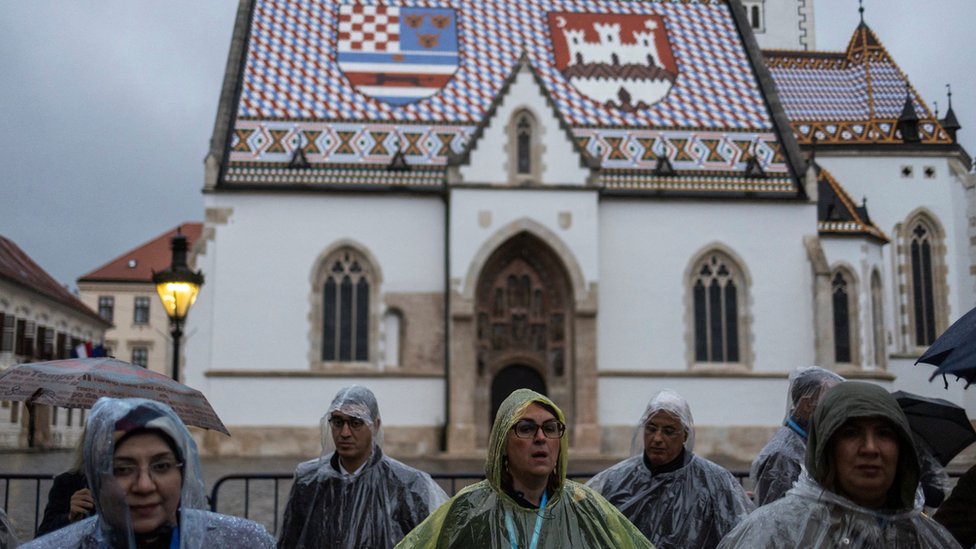
The fight against corruption and the Turudić case
Nevertheless, regardless of the statistical improvement in their pockets, Croats still believe that corruption and party connections are the cancer of society's wounds, he showed. Perception index corruption, which placed Croatia at the back of the European Union.
In recent years, HDZ officials have been part of numerous corruption and conflict of interest scandals, many of which were resolved before the Croatian courts.
"Croatian judiciary is perhaps one of the biggest problems and that's why the perception of corruption is like that, because there is no punishment.
"Processes last so long that we already forget who did what by the time the verdict is reached, years, sometimes even decades," she says, adding that this is why the trust in the office of European Prosecutor Laura Kovesi is growing among Croats.
The situation was further complicated by the appointment of a new state prosecutor, Ivan Turudić, a judge of the High Criminal Court, whose messages with a woman on trial for corruption and about cases pending before the judiciary were headline news in the Croatian media for days.
The appointment of Turudić was also a trigger for Milanović to get involved in the campaign.
"The prosecutor will be under a lot of attention from the media and the public, and it could happen that Turudić, in order to prove that he can do this job, will be extremely efficient."
"When both the opposition and the public watch him, then he has to do a little more than when they don't," notes the analyst.
Emigration and foreigners
While waiting to vote in Zagreb, the young man Jadran Đuić told the BBC that if there are no changes in Croatia, soon "there won't be any of us, they will all evict us" and that is one of the pressing problems.
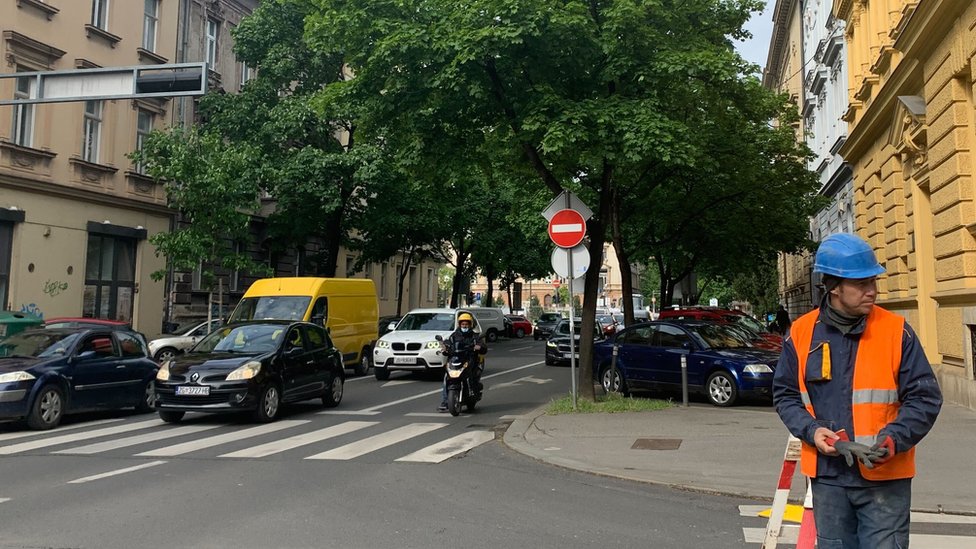
The total number of inhabitants in Croatia decreased by 413.000 people in ten years, which is about 9,6 percent, 2021 census data showed.
That decade coincides with the entry of this country into the European Union in 2013, which opened the door for Croats to more easily look for a new life or job in more developed countries.
In response to that, foreign workers are arriving in Croatia, so delivery bikes around Zagreb are mostly driven by Nepalese, and in many other jobs such as construction there are more and more immigrants, which further leads to an increase in xenophobia and the fear that foreigners will lower the price of labor.
Thus, for example, the Homeland Movement demanded in the campaign that foreign workers must know the Croatian language and advocated for special quotas when importing foreign labor, and perhaps they will decide the course of the new government.
Watch the video: Croatian minister's kiss for a German colleague
Follow us on Facebook, Twitter, Instagram, YouTube i Viber. If you have a topic proposal for us, contact us at bbcnasrpskom@bbc.co.uk
Bonus video:



